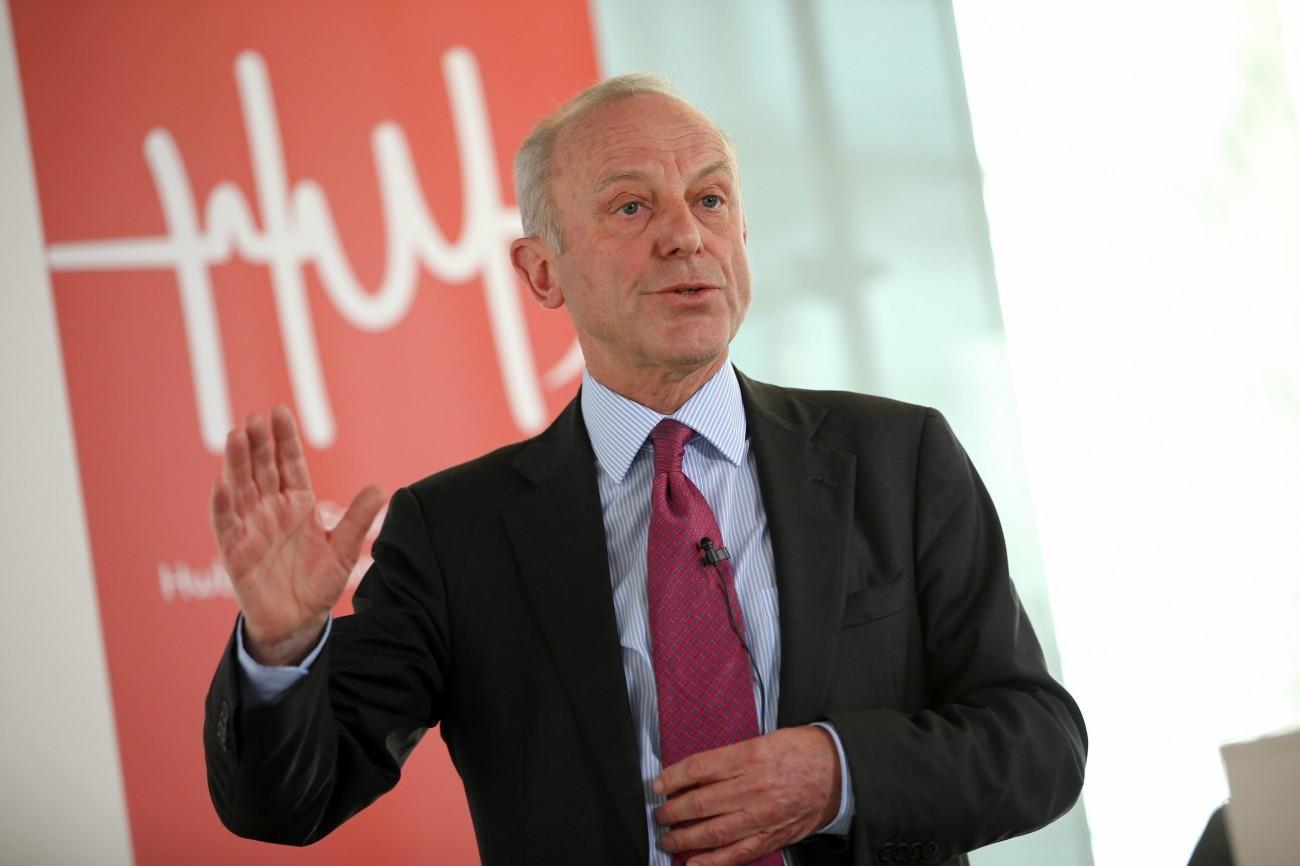‘The light at the end of the tunnel is coming’: The ‘positive professor’ Karol Sikora whose lockdown optimism has gone viral
The controversial former World Health Organisation chief has joined social media aged 71 and tells Lawrence Ostlere why he has become a soothing voice to his many thousands of new followers


“I’m an old man, you know,” says Professor Karol Sikora. “I’d never done social media up until six weeks ago.” The 71-year-old former WHO chief oncologist was encouraged by a friend this year to try Twitter. On 6 March he set up an account with a friendly photo and started offering calm advice for cancer patients ahead of the impending coronavirus pandemic.
“Don’t panic,” read his first tweet. “It’s true your immune system may not be working as well as it should so take the sensible advice of washing hands, avoiding crowds and eating well.”
He posted videos with messages of reassurance, and they quickly garnered thousands of interactions. “If we all pull together against Coronavirus there is no doubt in three months we’ll be in a totally different place – sitting in the sun wondering what the fuss was about … It will pass!” He began following others in the medical community. One radiographer tweeted: “Have to admit, I am honoured and excited that @ProfKarolSikora an incredible name in oncology, just followed me on Twitter.”
People are very frightened out there. Life is very uncertain right now, and I don’t think people like it
As his following grew to what is now 163,000, a regular sentiment has run through his replies. “More positivity from the best Twitter account out there currently,” read one this week to a flurry of likes. “Never thought I’d enjoy reading tweets from a professor so much!” Another popular comment read: “You’ve been the voice of reason throughout this crisis.”
Amid the darkness of the coronavirus lockdown, Professor Sikora seems to have become an almost spiritual guide in the social media age, a source of hope in the one place everyone can find it. He seems to be enjoying it too, even if he’s a little taken aback by the interest in his account. “I’m just staggered at the number of people that follow it, the number of people who’ve got time to look at it,” he tells The Independent. Welcome to Twitter, professor.
“It’s because of corona, that’s the only reason it’s come about. We tried to make it rational, statements based on fact, not gloom and doom. My wife avidly watches the 10 o’clock news and I just can’t watch it, they’re very harrowing. Of course it is harrowing, but you’ve got to see a way out of here rather than dwelling on the unfortunate present.”
The question, of course, is should we listen to him? Isn’t he simply selling hope, a cheap populist trick? Is he genuinely optimistic? “It’s really how I feel. This will go.”
Why has his upbeat message chimed with so many people? “Fear,” he says. “People are very frightened out there. Fear of death, fear of the future. Economic fears, fears for families. Will we ever be able to travel again? Life is just very uncertain now, and I think people don’t like it.”
Sikora has built a reputation as a leading voice in oncology and has co-written a raft of books on the subject, but his often outspoken views have also drawn much controversy. He has criticised the NHS on numerous occasions in the past, once describing it as “the last bastion of communism” and denouncing the UK’s health model in an advert supporting Barack Obama’s healthcare reforms. The advert described him as working for Imperial College, a claim he made several times which Imperial disputed.
His part in the Lockerbie bomber’s infamous diagnosis also brought intense media scrutiny. Sikora was paid by the Libyan government as one of three clinicians to assess the terminally ill Abdelbaset al-Megrahi, the former Libyan intelligence officer convicted of killing 270 people in the 1988 terror attack. Sikora later said he wished he had been “more vague” in concluding Megrahi was unlikely to live for more than another three months, and “was embarrassed“ when he lived for another three years.
Sikora’s critics remain to this day, and the reaction to his recent rise to prominence has not all been likes and clapping emojis. He believes one of the government’s chief failings is that the public should know when lockdown will end – he has called for UK lockdown to start gradually lifting as soon as next week – but one expert described Sikora’s proposal to rapidly exit this phase as “very concerning” , amid worries over inciting a second wave of the virus.
Sikora agrees we must be vigilant of a new spike, but warns public frustration could soon cause lockdown to “break down” and insists it would be worse to be overcautious. “Forget the economy, total lives lost will be greater if we don’t come out of lockdown. For the sake of the NHS, they have to get out of Covid mode and deal with cancer and all the other things healthcare systems deal with. At the end of the year, we’ll count more bodies coming from cancer and cardiac deaths than there were from the whole Covid business unless we get moving. Certainly by next week we should get going.”
He cites the example of Belgium, where a lockdown end date of 4 May was announced this week along with a step-by-step plan for returning to something approaching normality. “I think that’s what the British people need, not to be told ‘Well we have all the data, we’re not going to tell you what we’re judging it on, and we’re going to make an announcement when it’s good for you,’ they don’t want that. [The public should] at least know what’s going to be the trigger, the metric. Do we have to have deaths below 200 a day? Or new cases below 2,000 a day?”
Time will tell whether his bold ideas prove prescient or misplaced, but Sikora has no plans to stop spreading his brand of popular optimism. In a time when it is not always easy find, he believes hope carries real power.
“I’ve been a consultant in oncology for 40 years. If you do cancer medicine you’re going to have a lot of disasters along the way, and the important thing is to keep people’s hopes up, especially when there really is hope. With cancer there is a lot of hope, and you’ve got to keep people jollied along, and I guess that’s what we’re trying to do here: jolly people along, because the light at the end of the tunnel is coming.”
Join our commenting forum
Join thought-provoking conversations, follow other Independent readers and see their replies
Comments